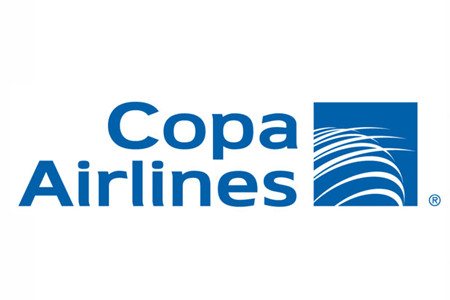In part 2 of our webinar series on How to Have Conversations About Race, you’ll learn how to use the Better Conversations Every Day framework to engage in meaningful dialogue that will create a more equitable and inclusive work culture.
Listening to Understand
Home > Our Leadership Development Solutions & Services > Leadership Development Topics > Listening to Understand
Achieve More With Stronger Listening in Leadership
Develop trust and relationships with others using the power of listening.
Being a good listener is vital to a leader’s success.
But a lot of people take their listening skills for granted. They might assume it’s clear that they’re practicing active listening and that others know they are being heard. But a conversation is more than just words.
The reality is that leaders often struggle with tasks and roles that directly relate to active listening. Accepting criticism well, navigating people’s feelings, and trying to understand what others think all require effective listening skills.
Fortunately, knowing how to talk less and listen more — meaning, how to listen to understand — is a skill that can be learned.
Listening to understand is a valuable technique that requires the listener to thoroughly absorb, understand, respond, and retain what is being said during a conversation.
While engaging in active listening, the listener may also pay close attention to the speaker’s behavior and body language in order to gain a better understanding of their message and intent.
When you listen to understand, it helps you to become a more effective communicator and a better leader. Your co-workers and direct reports will respect your effort to be more present in conversations, interpersonal conflicts will be reduced, and you’ll likely see improvements in your relationships with others as a result.
Upskill Your Team With Skills That Help Them Listen to Understand
Reduce Misunderstandings, Resolve More Conflicts, and Waste Less Time by Listening to Understand
Our research-based active listening training course equips your leaders to learn and practice effective listening so they truly listen to understand others. They will:
1. Learn to listen to the speaker, not just the facts being shared, but the values and emotions behind the facts.
2. Know specifically what to do, or to avoid doing, to be a better listener.
3. Avoid misunderstandings, build trust, and minimize wasted time.
4. Use their superpowers of Listening to Understand to resolve conflicts.
Help your team get more done at your organization and build a culture of respect and trust by equipping them with effective listening skills. We can deliver our world-class, research-backed active listening workshops and content on Listening to Understand — or you can.
Active Listening Training — Choose Your Delivery Method
You Deliver
You can use our proven content to deliver an active listening workshop or internal training, either online or in person, whichever you prefer:
Deliver targeted training to key leaders or small groups — leverage our content on listening to understand to host a half-day leadership development workshop
Accelerate development across your entire organization with comprehensive access to active listening content and all our leadership topics and solutions
We Deliver
Or, we can incorporate it as part of a larger initiative for your organization:
Combine with other topic modules and interactive experiences into a customized learning journey
What Our Clients Are Saying
Organizations who have partnered with us to upskill their people’s ability to listen to understand consistently tell us the same thing: their experience with CCL made a significant impact on their culture — and their bottom line.
But don’t just take our word for it — take theirs.
“Before, it was all about efficiencies, operational excellence, and profit margins. Those are still top priorities at Copa, but a new focus has been added: It’s about people and people and people.”

Dominik Rus
Corporate Learning & Development Director
Copa Airlines
“This was such a wonderful opportunity. I have practiced the Better Conversations techniques at my workplace and I’ve already seen results with improved relationships and conversations! I’ve put listening first. The program is excellent.”
Judy Mendoza
Communications Manager
Rochester RHIO
Let’s Discuss How Leaders Listen to Understand at Your Organization
Our experts are here to help. Let’s have a conversation about how an active listening training course for your organization and our Listen to Understand content could help support your development initiatives.
Our Research-Backed Perspective on Listening in Leadership
Avoid misunderstandings and practice more authentic communication in virtual settings by listening closely, not just for facts, but for feelings and values, too.
In order to deal with awkward, tense, or challenging conversations, we first need to understand the common mistakes we make — and then take 5 steps.
Whether in a planned coaching session or just an impromptu moment, you can open the door to valuable learning just by doing these 3 things in the conversation.
Empathetic leaders have been shown to be more successful. Learn why empathy in the workplace matters and how leaders and organizations can demonstrate and foster more empathy.
You don’t have to be a coach to use these 6 active listening techniques. Go beyond active listening and truly listen to understand, turning a casual chat into a coaching conversation.
Frequently Asked Questions About How Leaders Listen to Understand
Listening to understand is an important communication skill, especially for leaders. The most successful leaders are those who can engage in effective listening and demonstrate strong emotional intelligence. By doing so, they are better equipped to address conflict, accept criticism, navigate relationships, and understand different perspectives. Listening to understand includes being closely attuned to the speaker’s body language and non-verbal behaviors to understand not only what is being said, but also the emotions and values underlying the facts. Lastly, knowing how to listen to understand is especially important because it helps leaders build trust and earn respect from their coworkers and teammates.
A good leader must be a good listener in order to be successful. However, the reverse isn’t always true. For example, being a good listener is a vital skill for any leader, but leaders must also hone other core leadership skills. At CCL, our decades of experience and research have found that every leader, regardless of role, should have the fundamental 4 skills including self-awareness, communication, influence, and learning agility.
The best way to listen to understand others is to practice the 6 key active listening skills. First, you must pay attention to what’s being said, and give the speaker a chance to express themselves. Second, you must keep an open mind and withhold judgment. Next, practice reflection by periodically paraphrasing the speaker’s key points to make sure you’re following. Then, clarify and summarize what you heard by asking questions and giving a brief statement that covers the conversation’s core themes. Finally, after the speaker is done talking and you have a clear understanding of their perspective, you can begin to share your own ideas, feelings, and suggestions. To hone these skills, you may want to take a research-based effective listening training or active listening workshop like our proven Listen to Understand training.
More questions? Our experts are here to help. Let’s have a conversation!
Other Topics & Solutions Related to Active Listening Training Courses
Package our research-backed Listen to Understand content with other proven leadership development topics and solutions for a customized, scalable solution perfect for your organization’s unique needs, context, and culture. Related topics include:






